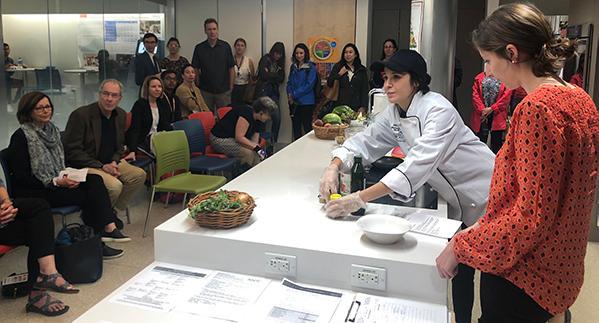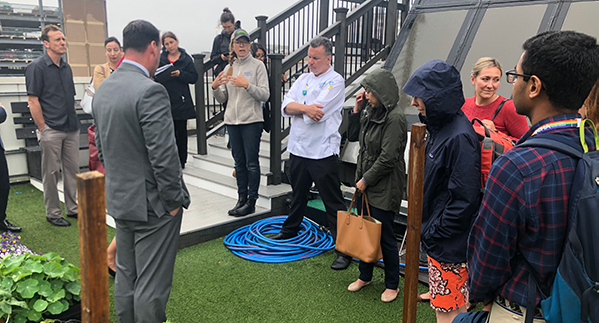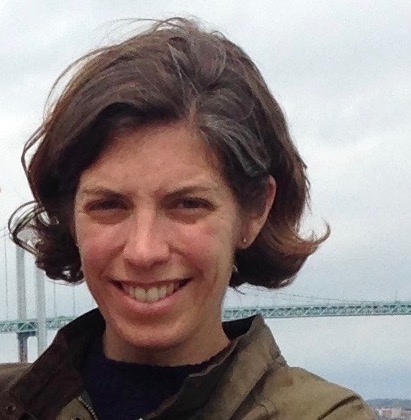Massachusetts tackles hunger, disease, and avoidable health costs
 Cooking demonstration at Boston Medical Center’s teaching kitchen. (John Stoddard)
Cooking demonstration at Boston Medical Center’s teaching kitchen. (John Stoddard)
by Betsy Skoda and John Stoddard
Eyes lit up as chefs, community benefit leads, and dieticians from Massachusetts hospitals watched a cooking demonstration at Boston Medical Center’s teaching kitchen. The kitchen helps those that receive a food pantry prescription learn how to cook with the items they have received, and is part of the hospital’s programming to tackle health issues related to food insecurity.
A 2018 study from the Greater Boston Food Bank and Children’s Health Watch of Boston Medical Center determined Massachusetts incurs $2.4 billion in avoidable costs each year due to hunger. Now, health care, hunger, and food systems partners in Massachusetts are joining forces to elevate the connection between hunger and health. These multi-sector efforts aim to influence systems and policy change – and to help people living in Massachusetts who are experiencing food insecurity and related health issues.
The Massachusetts Food is Medicine State Plan is led by the Center for Health Law and Policy Innovation at Harvard Law School and Community Servings. These groups worked with a planning council of over 40 representatives drawn from health care, insurance, community-based organizations, and academia to develop a framework that integrates “food is medicine” strategies into health care in Massachusetts. The plan sets forth 15 recommendations including insurance incentives for food insecurity screening, best practices for MassHealth to integrate, and training for non-physician providers. These recommendations aim to increase access to food-is-medicine interventions facilitated by health care and other stakeholders.
 Massachusetts representatives of health care tour Boston Medical Center's community health innovations
Massachusetts representatives of health care tour Boston Medical Center's community health innovations
rooftop garden following a meeting on The MA Food is Medicine State Plan teaching kitchen (John Stoddard).
A new Massachusetts Food is Medicine Coalition will work with three task forces focused on provider nutrition education and referral, community-based organizations, and research on implementation and advancing policy change.
The Hunger to Health Collaboratory, led by the Greater Boston Food Bank and Children’s Health Watch, aims to address the issue through cross-sector collaboration focused on reducing the health impacts of hunger. Stakeholders participating in the Collaboratory include Boston Medical Center, Stop and Shop, the Museum of Science, and Health Resources in Action.
The collaboratory is working to increase the use of food insecurity screening tools and referrals, increasing awareness of the hunger-health connection, and convening partners to discuss strategies to alleviate food insecurity through clinical interventions and policy change. The Collaboratory will host the Hunger to Health Summit on November 12-13 in Boston.
Both of these efforts are complementary to health care’s goals around improving community health through food systems change.
Learn more and hear stories about "food is medicine" interventions
 Betsy Skoda is a Health Care Without Harm's Healthy Food in Health Care community food systems coordinator.
Betsy Skoda is a Health Care Without Harm's Healthy Food in Health Care community food systems coordinator.
 John Stoddard is a Health Care Without Harm's Healthy Food in Health Care New England regional program coordinator.
John Stoddard is a Health Care Without Harm's Healthy Food in Health Care New England regional program coordinator.
